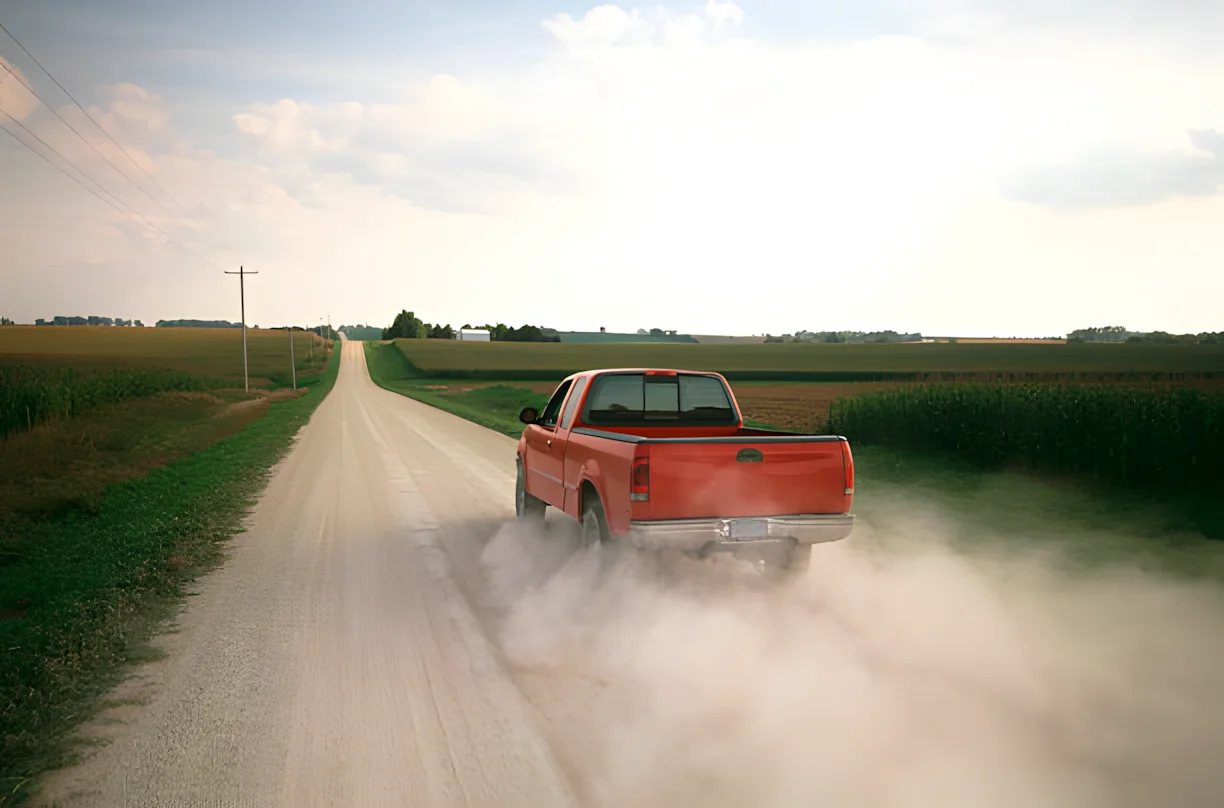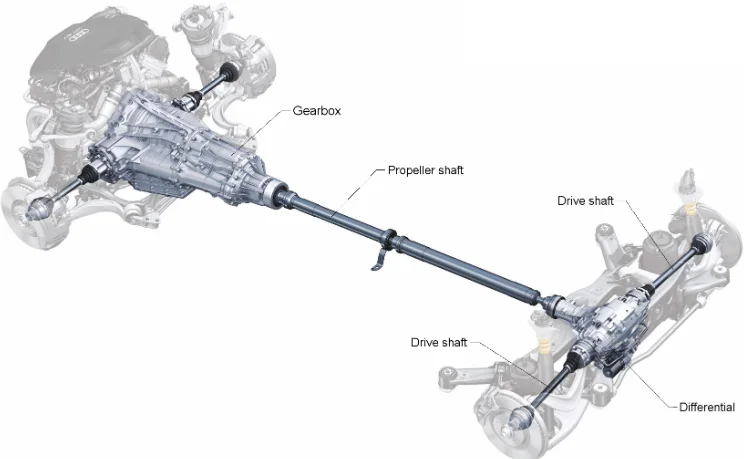
Your car’s differential is a crucial component that allows the wheels to rotate at different speeds, especially when turning. At the heart of this system is the ring and pinion, a pair of gears that play a pivotal role in transferring power from the driveshaft to the wheels. But what happens when these gears start to wear out or fail? Recognizing the symptoms of a bad ring and pinion can save you from costly repairs and ensure your vehicle runs smoothly.
What is a Ring and Pinion?
The ring and pinion are two interlocking gears found within the differential of a vehicle. The pinion gear is connected to the driveshaft, which receives power from the engine, while the ring gear is attached to the differential carrier, which in turn drives the wheels. This setup ensures that power is efficiently transmitted to the wheels, allowing them to rotate at different speeds as needed.
How Does a Ring and Pinion Work?
When you press the gas pedal, the engine sends power through the driveshaft to the pinion gear. The pinion gear engages with the ring gear, which then turns the differential carrier and ultimately the wheels. This process allows your vehicle to move forward or backward while adjusting the wheel speeds for smooth turns.
Signs of a Bad Ring and Pinion
Recognizing the early warning signs of a failing ring and pinion can help you address issues before they become major problems. Here are some common symptoms to watch out for:
Unusual Noises
One of the most noticeable symptoms of a bad ring and pinion is unusual noises coming from the differential area. You might hear:
- Whirring Noise While Decelerating
A whirring noise that occurs only while decelerating at any or all speeds is most likely caused by bad pinion bearings or loose pinion bearing preload. It’s almost never due to bad ring and pinion gears.
- Howl or Whine During Acceleration
If you hear a howl or whine during acceleration over a small or large speed range, it’s usually caused by worn ring and pinion gears or improper gear setup.
- Rumbling or Whirring at High Speeds
Rumbling or whirring noises at speeds over about 20 mph can indicate worn carrier bearings. The noise may change while turning, which is another sign of this issue.
- Regular Clunking Every Few Feet
If you hear regular clunking noises every few feet, it might indicate broken ring or pinion gears. This is a serious issue that needs immediate attention.
- Banging, Clunking, or Chattering on Corners
Banging, clunking, or chattering noises only when cornering can be caused by broken spider gears, lack of sufficient positraction lubrication, or worn positraction clutches.
Vibration and Shuddering
If your vehicle starts to vibrate or shudder, especially at higher speeds, it could be a sign that the ring and pinion are misaligned or worn out. This vibration is often felt throughout the vehicle and can affect the overall driving experience. Additionally, a steady vibration that increases with the vehicle’s speed can be caused by worn u-joints or an out-of-balance driveshaft.
Leaking Differential Fluid
A telltale sign of differential issues is fluid leaking from the differential housing. Differential fluid lubricates the gears, and a leak can lead to insufficient lubrication, causing the gears to wear out faster.
- Indicators of a Fluid Leak
Look for puddles or stains under your vehicle, specifically around the differential area. Also, check the fluid level regularly to ensure it’s within the recommended range.
- Consequences of Ignoring the Leak
Ignoring a fluid leak can lead to significant damage to the ring and pinion, resulting in costly repairs or even the need for a complete differential replacement.
Poor Vehicle Performance
A bad ring and pinion can directly impact your vehicle’s performance.
- Acceleration Issues
You might notice a lack of power or sluggish acceleration. This occurs because the power from the engine is not being efficiently transferred to the wheels.
- Reduced Power and Efficiency
Your vehicle may consume more fuel than usual as the engine works harder to compensate for the loss of power through the differential.
Irregular Tire Wear
A failing ring and pinion can cause uneven tire wear. This happens because the differential is not distributing power evenly to the wheels.
When the differential doesn’t work correctly, one wheel might receive more power than the other, leading to irregular tire wear patterns.
Conclusion
The ring and pinion are critical components of your vehicle’s differential system. Recognizing the symptoms of a bad ring and pinion-such as unusual noises, vibrations, fluid leaks, poor performance, irregular tire wear, difficulty in turning, and excessive backlash-can help you take timely action. Regular maintenance and prompt repairs can prevent costly damage and ensure your vehicle runs efficiently.



